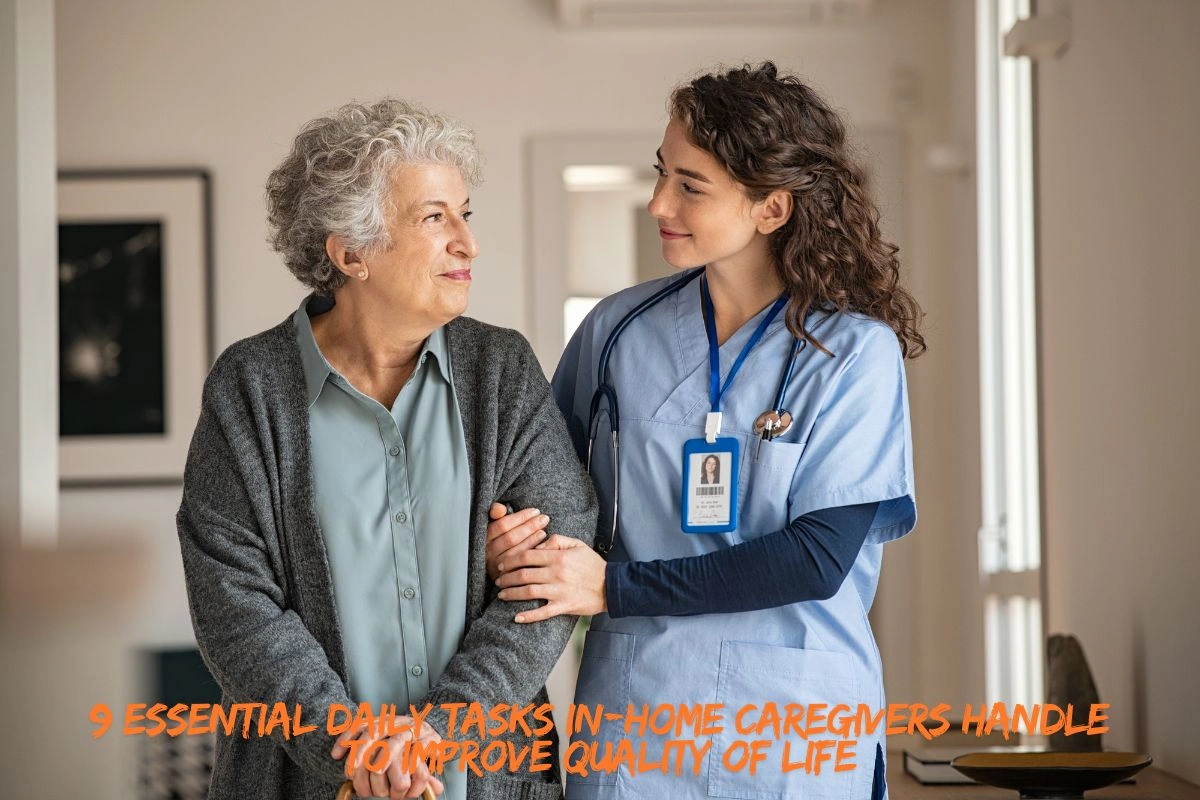Aging comes with challenges, but the right support can make a world of difference. In-home caregivers play a crucial role in helping the elderly with daily activities, allowing them to maintain their independence while ensuring their safety, comfort, and well-being. From assisting with daily routines to offering companionship, caregivers take on many responsibilities that enhance the quality of life for seniors. Here are nine essential tasks they help with every day.
1. Morning Routines and Personal Care
Starting the day off right is important for maintaining a sense of normalcy and dignity. Caregivers assist with bathing, dressing, grooming, and oral hygiene, helping seniors feel refreshed and confident. They also ensure that mobility aids, like walkers or canes, are within reach, reducing the risk of falls.
2. Meal Preparation and Nutrition
A well-balanced diet is key to overall health, but cooking can become challenging with age. Caregivers help by planning, preparing, and serving nutritious meals, accommodating dietary restrictions and personal preferences. They also encourage proper hydration, ensuring seniors drink enough water throughout the day.
3. Medication Reminders
Managing multiple medications can be overwhelming, but caregivers provide crucial support by reminding seniors when and how to take their prescriptions. They ensure that medications are taken on time and according to instructions, helping prevent missed doses or accidental double-dosing.
4. Light Housekeeping and Organization
A clean and organized home promotes a safer and more comfortable environment. Caregivers handle light housekeeping tasks, such as dusting, vacuuming, washing dishes, and doing laundry, so seniors can relax without worrying about clutter or cleanliness.
A well-maintained home plays a crucial role in health and well-being. A tidy environment reduces stress, improves air quality, and minimizes the risk of slips and falls. Professional cleaning services specializing in deep cleaning, disinfection, and allergen removal can be a valuable addition to in-home care, ensuring that seniors live in a fresh and hygienic space. These services focus on maintaining a home free of chemicals and pathogens by eliminating dust, mold, and bacteria that can trigger allergies or respiratory issues. A clean home also fosters a sense of calm, making daily life more pleasant and manageable.
5. Mobility Assistance and Fall Prevention
Many seniors struggle with mobility, making it difficult to move safely around their homes. Caregivers provide support by assisting with walking, transfers from bed to chair, and helping seniors navigate stairs. Their presence alone offers peace of mind, knowing someone is there to prevent falls and injuries.
6. Companionship and Emotional Support
Loneliness can have a significant impact on mental and emotional well-being. Caregivers offer conversation, engagement in hobbies, and emotional support, helping seniors feel connected and valued. Simple activities like playing cards, listening to music, or sharing stories can make a big difference in their mood and outlook.
7. Transportation and Errands
Driving becomes difficult or unsafe for many older adults. Caregivers assist with grocery shopping, picking up prescriptions, and accompanying seniors to medical appointments or social outings. This service ensures they remain active and engaged in their communities while avoiding the risks of driving alone.
8. Toileting and Incontinence Care
Maintaining dignity is a top priority in caregiving. For seniors who need assistance with toileting, caregivers provide respectful, discreet help while ensuring proper hygiene. They also manage incontinence care, reducing discomfort and preventing infections or skin irritation.
9. Evening and Bedtime Routines
A structured bedtime routine improves sleep quality, which is essential for overall health. Caregivers assist with changing into comfortable clothing, adjusting bedding, and ensuring a safe sleeping environment. They may also provide gentle reminders to use the restroom before bed, minimizing disruptions during the night.
In-home caregivers do more than just assist with physical tasks – they provide companionship, security, and a sense of independence for seniors. Their daily support makes it easier for older adults to remain in their own homes while enjoying a higher quality of life. Whether it’s helping with personal care, meal preparation, or simply being a friendly presence, caregivers offer invaluable support that enhances both physical and emotional well-being.










